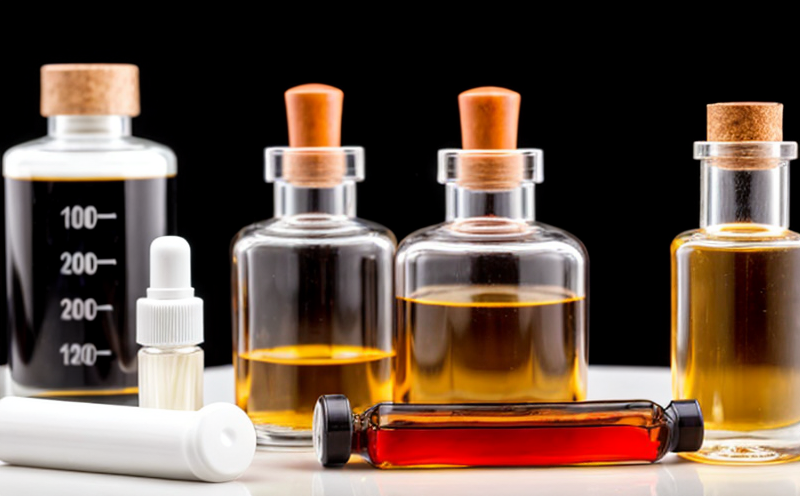JIS K0557 Pharmaceutical Solvent Residue Testing
The JIS K0557 standard is a critical guideline in pharmaceutical manufacturing that ensures compliance with quality and safety standards for the presence of solvent residues. Solvents, such as ethanol, acetone, or dichloromethane, are commonly used during drug synthesis to facilitate reactions or purify intermediates. However, these solvents must be removed before the final product is introduced into the market to avoid potential health risks. This standard provides a method for determining the residual levels of these solvents in pharmaceutical products.
The testing procedure outlined in JIS K0557 involves a solvent extraction step followed by analysis using gas chromatography (GC). The GC technique separates different components based on their boiling points, allowing for precise quantification of solvent residues. This method ensures that the solvent levels are below the maximum allowable limits set forth in this standard.
Compliance with JIS K0557 is essential for pharmaceutical companies to meet regulatory requirements and ensure product safety. Regulatory bodies such as the Pharmaceuticals and Medical Devices Agency (PMDA) in Japan rely on these standards to assess the quality of pharmaceuticals. By adhering to this standard, manufacturers can demonstrate their commitment to producing safe and effective drugs.
The testing process typically begins with sample preparation, which involves dissolving or diluting the drug substance in a suitable solvent. This step is crucial as it ensures that the sample contains sufficient quantities for accurate analysis. Once prepared, the sample undergoes extraction using an appropriate method, such as Soxhlet extraction. After extraction, the solvent residue is quantified through gas chromatography.
The JIS K0557 standard specifies a series of steps to achieve reliable results. These include selecting the correct diluent and extraction conditions, ensuring proper sample preparation, and calibrating the GC equipment accurately. The standard also provides recommendations for interpreting the results and handling any discrepancies that may arise during testing.
Understanding the intricacies of JIS K0557 is vital for quality managers and compliance officers within pharmaceutical companies. This knowledge helps them oversee the testing process, ensure accurate data collection, and address any issues promptly. For R&D engineers, this standard serves as a benchmark for developing new drug formulations that meet stringent quality standards.
The importance of JIS K0557 extends beyond mere regulatory compliance; it also plays a role in enhancing product quality and ensuring patient safety. By adhering to these testing protocols, pharmaceutical companies can build trust with healthcare professionals and consumers alike.
Why It Matters
The significance of JIS K0557 Pharmaceutical Solvent Residue Testing cannot be overstated in the realm of pharmaceutical quality control. Ensuring that solvent residues are below acceptable limits is crucial for several reasons:
- Patient Safety: High levels of solvent residues can pose serious health risks, including toxicity and allergic reactions.
- Regulatory Compliance: Adherence to JIS K0557 helps pharmaceutical companies meet regulatory requirements set by the Pharmaceuticals and Medical Devices Agency (PMDA).
- Product Quality: Consistent compliance with this standard ensures that each batch of drug product meets high-quality standards.
- Reputation Building: Demonstrating commitment to quality control enhances a company's reputation in the pharmaceutical industry.
In summary, JIS K0557 Pharmaceutical Solvent Residue Testing is more than just a compliance exercise; it is an integral part of ensuring patient safety and maintaining product integrity.
Applied Standards
| Standard Name | Description |
|---|---|
| JIS K0557-1:2016 | Method for Determination of Residual Solvents in Pharmaceutical Products by Gas Chromatography |
| JIS K0557-2:2018 | Guidelines for Sample Preparation and Extraction Procedures |
The JIS K0557 series of standards provides comprehensive guidelines that pharmaceutical companies must follow when conducting solvent residue testing. The first part, JIS K0557-1:2016, focuses on the method for determining residual solvents using gas chromatography. This part specifies the types of solvents to be tested and their respective detection limits. The second part, JIS K0557-2:2018, offers detailed procedures for sample preparation and extraction, ensuring that results are accurate and reliable.
These standards are regularly updated to incorporate the latest scientific findings and technological advancements in chromatography. Compliance with these updates ensures that pharmaceutical companies remain at the forefront of quality control practices.
International Acceptance and Recognition
- PMDA (Pharmaceuticals and Medical Devices Agency): The Japanese regulatory body mandates compliance with JIS K0557 for pharmaceutical products.
- WHO (World Health Organization): Although not directly mandating this standard, WHO recommends adherence to such international standards as part of its Good Manufacturing Practices (GMP).
- US FDA: While the US Food and Drug Administration does not specifically mandate JIS K0557, it encourages compliance with internationally recognized standards for quality control.
- European Medicines Agency (EMA): The EMA recommends following international standards like JIS K0557 to ensure product safety and quality.
- Other Regulatory Bodies: Many other national and regional regulatory bodies recognize the importance of this standard, often recommending or requiring its use in pharmaceutical testing.
The widespread recognition of JIS K0557 underscores its significance in ensuring global consistency in pharmaceutical quality control. Compliance with these standards is essential for companies aiming to market their products internationally while adhering to stringent safety and efficacy requirements.





